- All Online Classes
- 2024 Destination Retreats
- The Portal: Summer 2024 Writing + Healing Program For Women Creatives
- Testimonials
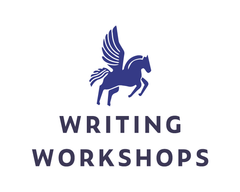
- Create account
- — View All Workshops
- — Fiction Classes
- — Nonfiction Classes
- — Poetry Classes
- — Lit Agent Seminar Series
- — 1-On-1 Mentorships
- — Screenwriting & TV Classes
- — Writing for Children
- — Tuscany September 2024: Apply Now!
- — ----------------
- — Dublin 2025: Join List!
- — Iceland 2025: Join List!
- — Hawaii 2025: Join List!
- — Paris 2025: Join List!
- — Mackinac Island 2025: Join List!
- — Latest Posts
- — Meet the Teaching Artists
- — Student Publication News
- — Our Mission
- — Testimonials
- — FAQ
- — Contact

Shopping Cart
Upcoming workshops on zoom, filter and sort.
71 products
Course Subject

YA Bestseller 101: How to Write a Propulsive Page-Turner 6-Week Zoom Workshop, Starts Saturday, September 7th, 2024

Writing Young: Drawing from Personal Experience to craft YA Characters 2-Week Zoom Intensive, Wednesday July 17th & 24th, 2024

Metaphor Magic: Creating Strong Metaphors to Transform Your Writing Zoom Seminar, Saturday, August 24th, 2024

Advanced Autofiction 6-Month Workshop with Victoria Costello, Starts Wednesday, August 14th, 2024

(Re)Creating Genre: Blurring Lines & Labels 6-Week Zoom Class, Starts Thursday, July 11th, 2024

Etched Memories: Body Marks & Scars Zoom Seminar, Saturday, September 7th, 2024

Building Writer Confidence & Dealing with Self-Doubt Zoom Seminar, Saturday, June 22nd, 2024

Land Big Bylines by Writing for Columns Zoom Seminar, Sunday, July 7th, 2024

Screenwriting 4-Week One-on-One Mentorship with Meredith Alloway: Apply Now, Starts May 15th, 2024

6 Month One-on-One Fiction Mentorship for Story Writers & Novelists with Alyssa Songsiridej, Starts July 24th, 2024

The Secret Formula to Writing Nonfiction Stories that Sell Zoom Seminar, Thursday, June 27th, 2024

Book Proposal Boot Camp: Create the Business Plan For Your Book in 6-Weeks (Zoom), Starts Wednesday, June 5th, 2024

The Portal: A Summer Writing + Healing Program For Women Creatives, June 18th - September 3rd, 2024

Threads: Writing Dreamscape, Writing Disaster 6-Week Multi-Genre Zoom Workshop, Starts Thursday, June 27th, 2024

Awaken Your Inner Word Witch: A Creative Writing 8-Week Zoom Workshop, Starts Sunday, June 30th, 2024

5-Day Challenge: Use Fiction Elements to Energize Your Nonfiction (Zoom), June 17th - 21st, 2024

As Tears Go By: Poetry & Film 6-Week Zoom Workshop, Starts Wednesday, June 12th, 2024

Writing Real Female Rage 4-Week Zoom Seminar, Starts Wednesday, June 12th, 2024

From Barbie to Beyonce: Writing Poems Inspired by Popular Culture 3-Week Zoom Workshop, Starts Wednesday, July 10th, 2024

Poems of Gratitude: Celebrating The Summer Solstice Zoom Seminar, Thursday, June 20th, 2024

Writing The Family 6-Week Zoom Workshop, Starts Thursday, July 11th, 2024

Podcasting for Writers: How to Start, Sustain & Grow Your Podcast 4-Week Zoom Workshop, Starts Monday, July 8th, 2024

How to Build a “Platform” for Writers Who Shudder at the Thought Zoom Seminar, Sunday, June 9th, 2024

Writing About Mental Illness 8-Week Zoom Workshop, Starts Thursday, June 6th, 2024
Create an online course, reach students across the globe, & earn money.
- Work + Money
- Relationships
- Slow Living
5 Best Writing Classes You Can Take Online

PSA: You don’t need a higher education or an MFA to become a great writer. Truth be told, you don’t need any form of classes—only your paper and pen—to get started on the next bestselling novel. Curriculum and instruction can help though, especially when you find yourself stuck in a writing rut or eager to learn more about your craft.
The list below includes a few of our favorite online writing classes, perfect for writers of all levels and genres. Consider gifting yourself a bit of structured creative time in 2023 and maybe some Zoom rooms you’ll actually want to hop into. We can’t wait to read what you write!
For more creative writing inspiration, try these 52 creative writing prompts .
1. Catapult
Best For | Zoom classes and virtual workshops led by renowned instructors Starting At | $75 for a 1-day seminar Catapult offers one of the most extensive lists of online writing workshops and classes, and many of the instructors are renowned authors or literary magazine editors. Our team has taken a six-week essay course, a one-day editing seminar, and a creative nonfiction class—all online—and each one has far exceeded our expectations. Catapult is also excellent for connecting with other writers (the workshop component is one of the best we’ve experienced), and we’ve made and maintained relationships with writers all around the world. With online courses of all lengths and covering various genres, it’s perfect for everyone.
Browse Catapult Writing Classes
2. masterclass.
Best For | Self-led courses with the world’s best writers Starting At | $15/month billed annually (access to all courses) While you won’t get a workshop component with these courses, MasterClass is one of our favorite websites for learning about all things, including writing. The instructor list packs a serious punch, with big names like Shonda Rhimes, Margaret Atwood, David Sedaris, and Roxane Gay. This is a great option if you want courses you can take at your own pace and videos you can revisit again and again.
Browse MasterClass Writing Classes
3. one story.
Best For | Short story and fiction writers Starting At | $55 (three-day intensive) One Story is a publication bringing people together through reading, writing, and learning about short fiction. In addition to its mission of publishing one short story at a time, the org offers affordable online writing workshops and classes throughout the year. Read one of the recent One Story issues here , and then browse the upcoming workshops to find the best fit for you.
Browse One Story Workshops
4. sackett street writers.
Best For | Small-group writing workshops, advanced workshops Starting At | $450 for 6-week courses Another team favorite, Sackett Street Writers has been called a “top alternative to MFA programs” by Poets & Writers. The 8-week workshops offered online throughout the year are perfect for taking your craft to the next level. Most are in small group settings (9-10 writers), and while Sackett offers courses for all levels, some of the advanced workshops require a writing sample and application. This may sound a bit daunting, but it actually creates a challenging environment and an excellent cohort of writers to workshop with, so give it your best shot!
Browse Sackett Street Writing Workshops
5. write or die magazine.
Best For | Mentorships, self-guided classes Starting At | $12 for a self-guided course “Writers need writers” — ain’t that the truth! Write or Die Magazine is an online hub offering writers resources, inspiration, and connection and accountability. The website has plenty of freebies and affordable self-guided classes to help you build a sustainable writing practice and overcome common fears and doubts associated with writing. If you have a serious project in the works, the platform also includes one-on-one mentorships and coaching. Sign up for the weekly newsletter for upcoming class announcements.
Browse Write or Die Magazine Classes
Bonus: story club with george saunders.
Best For | Ongoing interaction with writers and lessons from George Saunders, of course! Starting At | $6/month (or $50/annually) While not a traditional writing workshop per se, we love Story Club with George Saunders for the writing MFA we never applied for. Wrestling with the concept of story in a continuation of his latest book A Swim in a Pond in the Rain , each email (hosted by Substack and sent twice a week) includes guided readings and is both interactive and rigorous. You can also anticipate writing exercises and prompts, examples from Saunders’ vaults of files, and comment discussion threads about craft and writing life. Learn more about the structure and see past posts here .
Browse Story Club with George Saunders
Kayti Christian (she/her) is a Senior Editor at The Good Trade. She has a Master’s in Nonfiction Writing from the University of London and is the creator of Feelings Not Aside , a newsletter for sensitive people.
RELATED READING

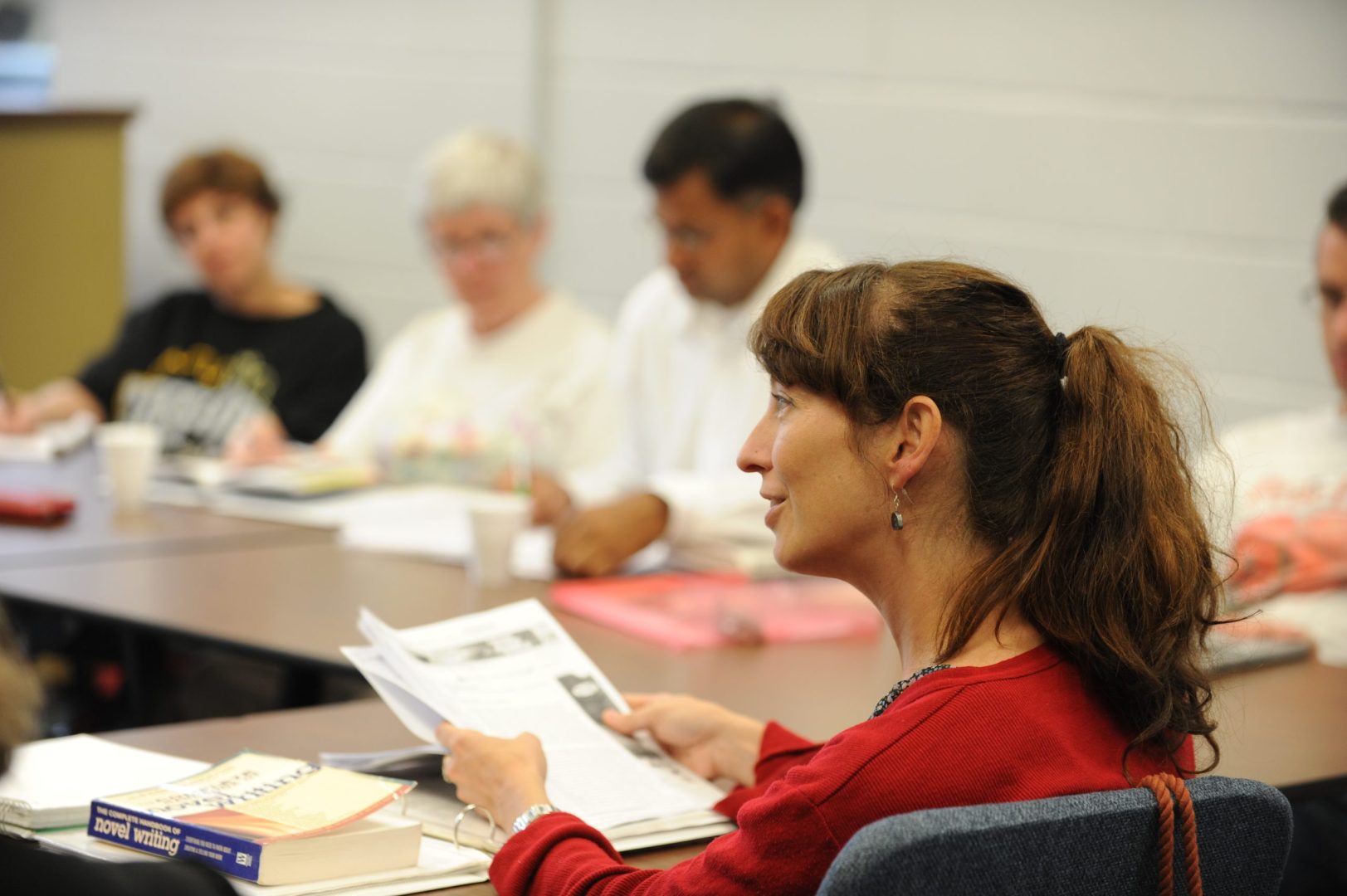
Take a workshop
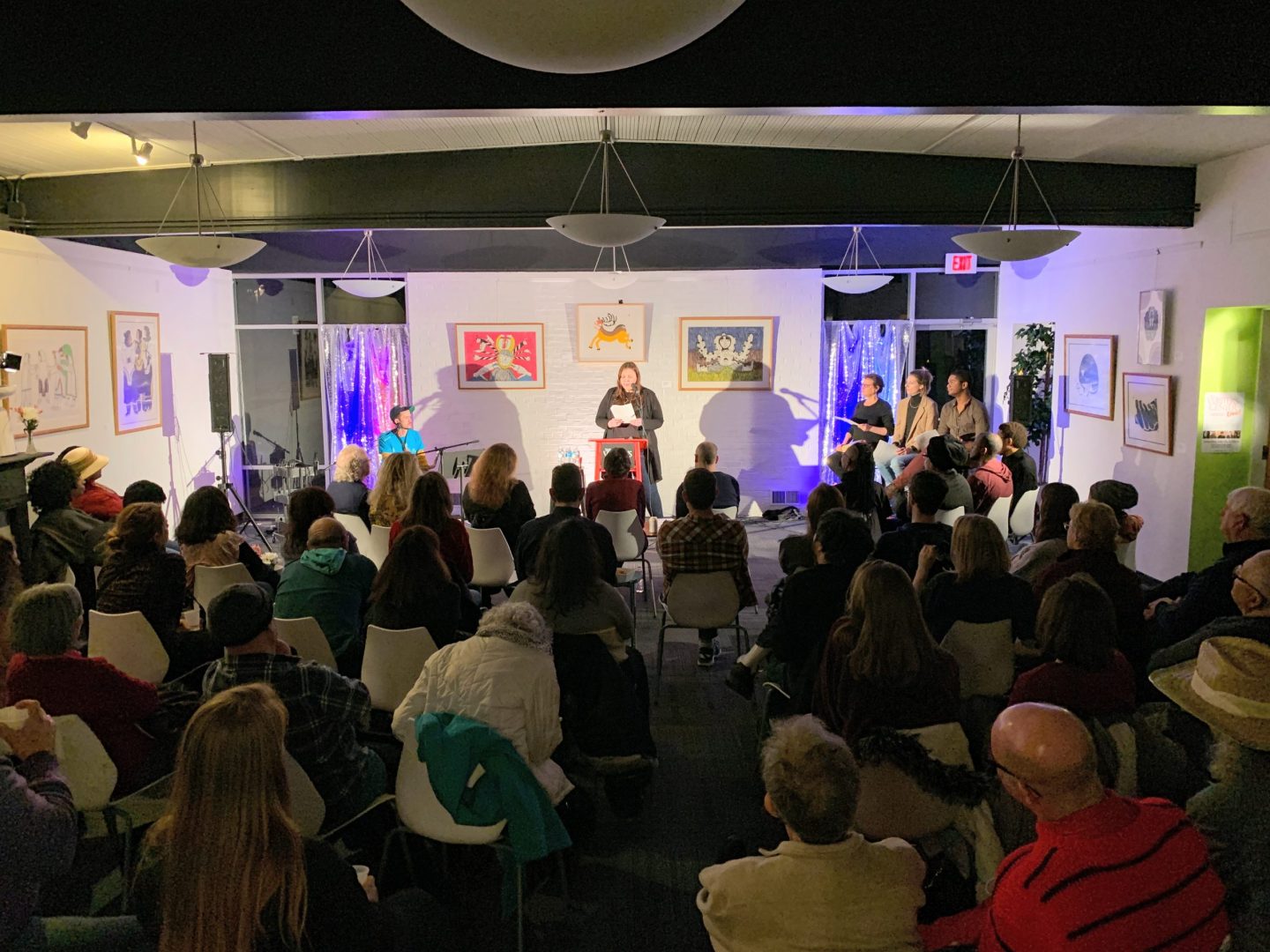
Help us help writers!
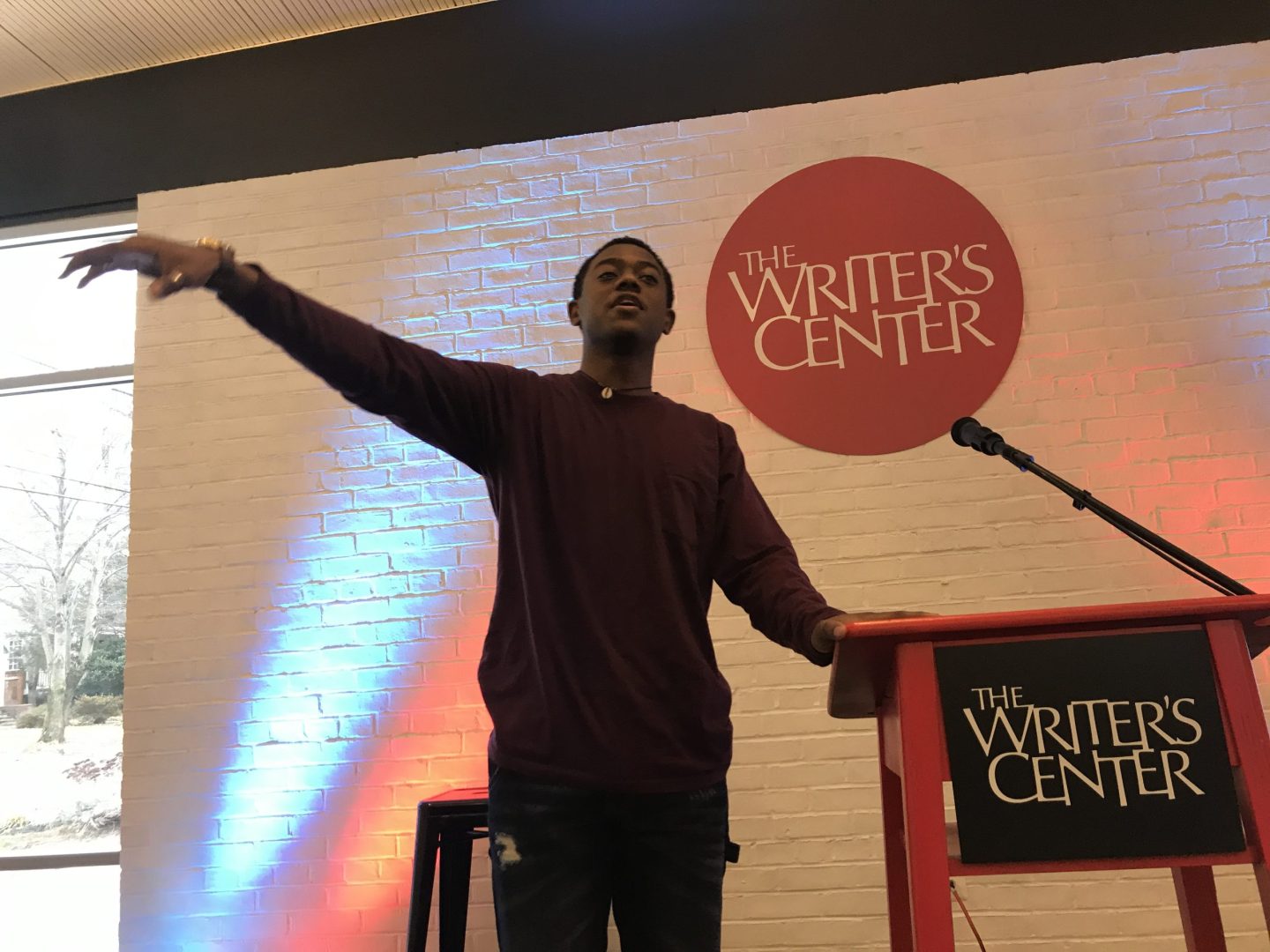
Learn about The Writer's Center
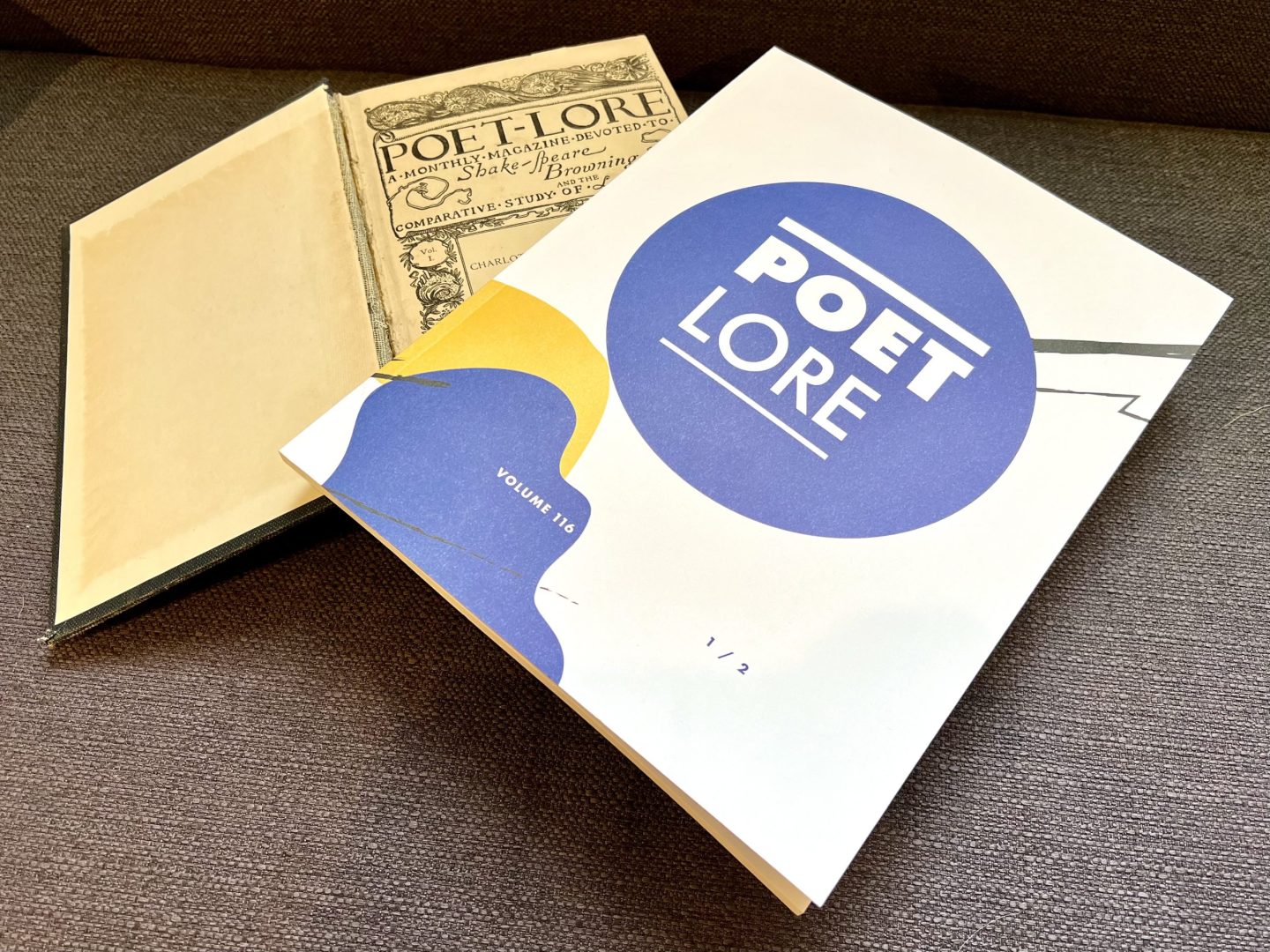
America's oldest poetry magazine

Writing Workshops
The Writer’s Center offers hundreds of writing workshops and classes every year. Workshops cover all genres and all experience levels. Join us in person and online.
Events Search and Views Navigation
Event views navigation, writing about mental illness.
Whether you have experienced mental illness personally or have a loved one with mental illness, writing about it can help you process the challenges and inner conflicts while creating powerful narratives that reduce stigma and stereotypes. In the spirit of healing through storytelling, participants will write about how mental illness has directly or indirectly affected their lives. You will learn creative ways to practice self-discovery through writing and turn personal experience into art, and you will come away with two rough drafts in whatever genre you choose. For inspiration, we will read pieces by Elyn Saks, Bassey Ikpi, Mariah Hornbacher, and more. Please note, this is not a replacement for therapy. It’s an opportunity to explore a difficult topic through a creative lens.
The Power of Structure: Fixing your Table of Contents
Join us for an immersive workshop where we’ll guide you through the art of creating a compelling table of contents. In this hands-on session, you’ll learn how to organize your ideas effectively, create a roadmap for your readers, and ensure your manuscript flows seamlessly from start to finish. Whether you’re working on a novel, a thesis, or any other project, mastering the table of contents is key to captivating your audience. Don’t miss this opportunity to refine your craft and take your writing to new heights.
How to Write a Key Scene
A key scene is an essential building block in any work of fiction. In this session, you’ll learn tips and strategies for making the scene you see in your head come alive on the page so that your reader is compelled to keep turning the pages, rather than turn out the light. Writing exercises will give class members a hands-on feel for how to add texture, dynamism, and drama to a story. The session also provides practical, hands-on guidance about the rewriting process. An added benefit: giving and receiving critical feedback. You’ll come away from the class with the creative muscle memory to write and revise with confidence.
Writers Listening
One of life’s great joys is finding time to listen — whether to the scattered wonders of conversation or to the many voices of the non-human world: birdsongs, wild wind, river’s sweep. In this two-hour workshop we will identify sources for the listener’s delight, and share ways to grow them into poems, songs, and stories. No experience necessary.
Your First (or Next) Novel
Writing a novel takes commitment, but it doesn’t need to be daunting. Learn how to generate a handful of plots to choose from, methods for effectively planning your story, and simple hacks for fine tuning your basic fiction skills. Participants will initiate a flexible writing plan that will keep their writing flowing. This is a great half-day session for the beginning long-form fiction writer, or for the more experienced author in need of a quick strategy brush-up.
Crafting Short Stories
In this workshop, participants will examine the qualities of good writing and good storytelling. After a recap on the constituent elements of short fiction, we will take a fresh look at contemporary and classic stories alike. Each week, writers will craft a new piece and offer feedback to fellow participants. By the course’s end, writers will have workshopped several stories each and revised them with an eye toward publication.
Plotting Your Novel
Whether you are an organized planner or a writer who flies by the seat of their pants, a novel still needs structure. In this workshop, participants will study the architecture of a novel and devise plans for plotting their novels. Using the three-act structure as a map, we will explore the basic components of a novel’s plot.
Facing Your Writing Fears
Not only is writing a lonely process, it can be downright scary. And, when it comes to mustering the courage to share our work with others, fear can turn to terror. In this session we’ll look at understanding what frightens us — and how to get beyond those fears.
Book Marketing on a Budget
You’ve written – or are writing your book – now fight for it! In this workshop we’ll focus on over two dozen book marketing tips, with a close eye on budgets. From book launches, social media, blogging and podcasting, to writing press releases, creating Amazon Author’s pages, and connecting with publicists, we’ll fill your head, and notebook with ideas; over 30 of them! If you think writing a book is exciting, wait until you feel the thrill of professionally promoting it!
Micro Memoirs
Join us to explore the elements of memoir in small manageable bites. We’ll read and discuss Micro Memoirs, also called Flash Memoir, (50-250 words) to inspire your own writing and enhance your storytelling skills. Each week, with provided prompts, you’ll write about a variety of incidents, stories, or memories while building specific craft skills (image, metaphor, point of view, rhetorical strategies to address memory “gaps,” and more). In each class there will also be time for students to read their work out loud, to receive specific appreciations. Using a writer-focused workshop process, we’ll replace opinions and invasive “fix-its” with specific answers to their questions to best serve the writer and support them in revision. This class is perfect for poets and prose writers who want to write about their lives or family histories, get out of their writing ruts, and enhance their skills with feedback and revision.
Evoking Reader Empathy
Even when a story is skillfully written, it may not be enough to make the reader care. The key lies in the emotional impact your story has on readers — inviting them to not only invest in your characters, but to embark on an emotional journey of their own. We’ll discuss how to avoid cliché and heavy-handed moralizing; determine the most effective balance of internal thought, scene, and underlying tension; and discover how to let an object or image (your father’s watch, a specific place, work of art, etc.) carry the emotional weight of your story. Reading examples and short exercises will give participants the opportunity to experiment with creating empathy on the page.
Creating Backstory & Flashbacks
Every character has a hidden history from before your story starts. Learn how to masterfully weave in details and experiences that enrich your characters and create believable motivation. Novelists, short story authors, and creative nonfiction writers will all benefit from these twin skills. You’ll see your writing grow in sophistication and depth.
Writing Compelling Historical Fiction
Setting your fictional characters in the real time and place your story occurs makes it a vivid read that will draw readers in and keep them turning pages. The first three workshops will teach participants how to access the broad spectrum of information available in person and online in the unique research institutions that exist in the DC area, including the National Archives; the Library of Congress; Federal Records Centers; Federal agencies’ Public Information Offices; Federal and state courts; libraries specializing in Washingtoniana; foreign embassies; and more. During the last two workshops, every student will present their proposed research plan and critique the plans of their classmates, to ensure that their research will focus on the most helpful institutions and the most valuable topics.
Poetry of the Erotic
For many poets, writing poems about sex can feel intimidating and difficult. Yet for as long as there’s been poetry, there have been poems that celebrate the joys, mysteries, and chaos of erotic connection. This workshop offers an opportunity for poets to write their own poems with Eros at the center, as well as read and study poems featuring a wide range of poets of color, and queer and trans poets. In this workshop we’ll ask ourselves questions like: How can poems about sex gesture toward even larger considerations than sex itself? What might we learn from poetic traditions that blend erotic poetry and spiritual poetry? How does Eros locate the body both within itself, while transcending the self? By the end of this workshop, students can expect to leave with new poems and new insights into their own poetic process. Students should plan to come to the first workshop with a favorite poem by another poet, to share with the group.
How to Write a Novel
A practical plan that takes you from the mere germ of an idea all the way through the creative process, with an eye on getting a finished book into the hands of potential fans. We’ll discuss how to transform the nub of an idea into a book-length project, populated with interesting characters, a twisty-turny plot, snappy dialogue, and an interesting setting. We’ll also look at strategies for finding an agent and marketing the finished product. You’ll come away from the class with the encouragement to begin and perfect your writing project.
Plant Writing
This workshop is a mix of botanical science and literary explorations of non-fiction forms of writing that focus on ecology and plants. Together, we’ll discuss and practice writing traditions such as garden writing, science communication, and personal essays with a focus on our relationships to plants and land around us.
The Extreme Novelist
Can’t find the time/energy/inspiration to get your novel written? This popular course, developed by the author of the book by the same name, will help you complete a rough draft in just 8 weeks. Students receive the encouraging guidance of professional writing coach Kathryn Johnson. Each author will commit to an aggressive writing schedule and learn the tricks pros use to create a productive working environment and meet their deadlines, despite life’s distractions. Classes will include accountability and progress reports from each student, troubleshooting discussions, a brief lecture on some aspect of the fiction craft, and the opportunity to submit portions of the work-in-progress to the instructor for individual feedback and guidance. (Note: This is not a work-shopping course. Further information will be sent to registered students, in advance of the first class.)
Finding Subjects that Move and Entertain
Do you have sensibility of a writer, but your subject eludes you? Have you written many pieces but not the story you were born to tell? Does your subject feel too big, too vague, or perhaps too difficult to confront? Uncertain what genre suits your story? Using published examples, writing exercises, lively discussion, and inspiring instruction, this workshop will distill from memory and imagination the story you are meant to write. Perfect for new writers wishing to explore and for more advanced writers seeking fresh inspiration or a new direction to energize their work.
Experimenting with Form
What do immigration forms, censored letters, and dictionary definitions have in common? They’re all ways to tell a story! In this class, we’ll free our imaginations by writing stories, poems, and essays in expected ways. Come take a risk and see what you discover about your craft, your inspiration, and yourself.
Creating Conflict & Tension
It’s often said that without conflict there is no story. Strengthening the conflict in any type of fiction will bump up the tension and turn limp, ordinary fiction into an extraordinary tale that will keep readers turning pages. Whether you choose to write literary fiction, mysteries, family sagas, thrillers, historical fiction, sci-fi, fantasy or even creative nonfiction—you can learn techniques for drawing readers into your tales through action, dialogue, setting details, and plot twists that make your work stand out from the crowd. Join us and leave with ideas to apply to your stories.
Write Through It: A Generative Workshop on Grief and Loss
Grief and loss are topics often written about in poetry. In this workshop we’ll read poems about loss and use them as prompts to write our own poems about the people/things/places/ideas we’ve lost or are grieving. Expect to write 2-4 new drafts of poems.
UnClogging Your Brain
Prompts will spark memories, characters, and places, turning them into poems, scenes, dialogues, and stories. During ‘UnClogging’ you will likely come up with an ‘idea’ that you feel compelled to expand on, or perhaps be re-inspired to continue an unfinished work later. Find new perspective and confidence!
5 Women Poets
One outstanding poet will be featured in each class, and as we examine their work we will write 3 or 4 of our own poems, for a total of 15-20 poems during the course. We will share our work as we write it, and in the last class will workshop a few of the most promising pieces by each student. The poets we will learn from are Ada Limón, Linda Pastan, Natasha Trethewey, Denise Levertov, and Elizabeth Bishop—they will guide us with new and old forms, metaphor, voice, subject matter, and more. Note: No meeting July 4.
Freedom With Forms
Here’s an opportunity to shed any misconception that received forms are constricting. Inspired by Richard Moore’s “The Rule That Liberates,” we will do brief writing exercises that use the enchantment of meter and rhyme to liberate your deeper imagination. After exploring several traditional forms, we will experiment with creating improvised (nonce) forms. Participants may leave with at least one new draft poem and ideas for creating more.
Inspiration Station — A Multi-Genre Workshop
Helpful exercises and prompts can free your imagination and lead you to surprises in your writing. If you’ve already chosen a genre to pursue, this workshop can help you broaden your approach by using techniques from other genres. If you write poems, perhaps you could write poetic fiction. This will be a positive space in a can’t-fail atmosphere. Your writing is greeted with support and (often) applause from your workshop colleagues. Receive generative tips to take with you. You will leave with a finished poem and flash fiction or memoir excerpts—and the fun you had writing them. Bring your favorite writing instruments. If you have a poem or paragraph you love that makes you want to write, bring that too.
Vulnerability in Personal Storytelling
Each of us has the power to look at our lived experiences to find meaning and wisdom that we can transform however we want: into art, into lifestyle, into legacy. In this workshop, you will learn how to view creative vulnerability as generosity, and how to offer up your humanity through story as a gift to yourself and others. You will come away from this workshop with perspective on your unique storyteller type and how grasping it can build courage, as well as best practices for taking care of yourself as you do this introspective work. Writers will produce a rough draft of a personal story.
Natural Meter Crash Course
Have you ever wondered how scanning the lines of your first draft can make for a better poem? Here’s an opportunity to improve your ear for meter—a major element of poetic prosody—and to fine-tune your understanding of how it works. Guided by an internationally published author of sonnets, villanelles, and other metrical poems, this one-day workshop includes scansion of well-known poems, writing exercises, and, if you like, close examination of a poem you’ve drafted prior to class. You’ll leave with new insights about improving the auditory qualities of all your poems and prose.
Plot Like a Pro
You have a great idea for a story. Do you dive in and just begin writing, or start by drafting an outline? Are you a born planner or a writer who loves to discover stories organically (i.e., a pantser)? Understanding how to structure a well-conceived story around a main character and central conflict, while paying attention to pacing, can make the difference between a finished, publishable manuscript and an abandoned work-in-progress. Plotting provides a safety net that never robs the author of the joy of writing, and always reduces revision time. Think you can’t plot? Join us for this course, and we’ll show you how!
Picture Book Revision Workshop
Bring your completed picture book manuscript to work on as we complete real-time revision that addresses the big picture, plot and character beats, and line by line strengths and weaknesses of your manuscript.
How To Write, Pitch, and Place Op Eds
Learn from an expert how to format, write, and pitch your opinion. Second only to the Front Page, the OP ED page is read by more readers than any other. In this class you’ll learn how to write an opening paragraph that pulls readers in, what factual sources editors trust (or don’t), the three questions an OP ED editor needs you to answer, how to take down opposing arguments politely, and end your piece to get results. Each session presents important information, from what words constitute an editor’s red flags to what’s in the contract you’ll sign. Each session presents a lecture with specific examples and offers a workshop to let you practice and receive feedback—if you wish it.
My Favorite Things: Writing About Ordinary Objects and Places
Contrary to what you’ve been told, poetry can be accessible and profound by paying attention to the mundane. In this workshop we will write a new poem each meeting based on odes, praise songs, and, yes, our favorite things to arrive at the pleasures and wisdom of poetry.
How to Write Dialogue That Advances Plot, Scene, and Motive
In each session of this workshop, you’ll hear a brief lecture with examples, and be able to practice a particular technique to understand the why and how it’seffective. Participants who wish to read their practice work aloud for quick feedback may do so.
The Complete Playwright
Dig into the full spectrum of playwriting — with workshops on process, form and technique, and group critique sessions that develop your individual approach to writing for performance. Over eight weeks, we’ll explore playwriting in a wide range of forms: from realism and adaptations to immersive theatre, musicals and verbatim plays. In-depth sessions on writing dialogue, crafting character and dramatic world-building will be paired with weekly critique sessions, giving each writer dedicated time to interrogate your ideas and find your unique style. You’ll come away with a full understanding of the playwright’s tools and techniques and new connections with fellow scriptwriters.
Point of View and Narrative Voice
Do the multitude of Point of View options elude you? We will look at everything from the first person point of view to the editorial omniscient, as well as some of the less traditional points of view, to help you choose the best voice to tell your story.
Intro to the Novel
This workshop will help you understand the process of writing a novel so you can get started putting pen to paper. The workshop will focus on everything from generating ideas to developing characters to establishing point of view. Participants will discuss many elements of fiction (dialogue, scene, etc.) but the emphasis will be on discovering the writing process that works best for each writer.
Creative Spirit: Infusing Your Writing with Energy and Inspiration
Are you struggling to find your voice as a writer? Do you have a story to tell but feel stuck in the creative process? No matter your beliefs, spirituality and open-mindedness can play a critical role in the creative process if we allow it and nurture it. In a safe and supportive space, reintroduce your childlike wonder around creativity so you can write freely, authentically reclaim your power, and uncover your true gifts. In this workshop you will learn to facilitate a concentrated focus and tap into a higher source of inspiration, whether viewed as the highest self, inner wisdom, or any other entity. You will walk away with efficient ways to set intentions for different writing projects, stay in the present, trust your process, set healthy boundaries, and follow signs and intuition. You will have the information necessary to create a sacred space and ritual for your writing practice, motivating you to enrich your content and deepen your message.
How to Start a Compelling Story
This workshop will teach writers how to capture readers’ and agents’ attention from the very first sentence and keep them turning pages. We will examine the way successful authors of both fiction and nonfiction draw us in, make us care, and create stakes in which we are immediately invested. By the end of this workshop participants will have created their own compelling story start upon which to build.
How to Write a Lot
You may think you don’t have the time, energy, or inspiration to write because of your hectic lifestyle. Wrong! Learn what Kathryn Johnson’s Extreme Novelists know about organizing their time, establishing a productive writing routine, and getting their stories written. We’ll share methods EN Grads (and many professional writers) use to complete their books in months instead of years, their short stories in mere weeks. Become the dedicated author you’ve always dreamed of being.
Find the Right Agent for You: Submission Package Workshop Class
To get a book published by a traditional publisher, you need an agent. In this class you will learn how to research agents to find the right one for you. After studying sample query letters, you’ll write your own query to be critiqued by your classmates. We will also workshop everyone’s opening pages and discuss topics such as conference pitch sessions, common query mistakes, and agent red-flags. By the end of the workshop, you will be ready to send query submissions to the agents of your choice. (Although you do not need to bring it to class, you should have a completed manuscript you are hoping to publish through traditional publishing.)
Marketing Your Poetry
This workshop will show you easy hacks for promoting your book. With small presses a popular choice for publishing, more writers are looking for ways to market their books when their publishers don’t have the resources. Courtney LeBlanc has published with small presses and have experience with grassroots marketing. She has successfully gotten her books included in festivals, author events, and into bookstores. The tips she will offer are low/no-cost, which is beneficial for writers on a budget.
Fiction II: Revise, Perfect and Submit!
This course aims to help you experience your work objectively, help you polish your work, and give you tools to submit to either literary journals, competitions, or agents. We will workshop, give and receive constructive, concrete feedback, discuss peer submissions, do writing exercises, critique query letters and talk about all things publishing.
Elements of Writing: Sound & Vision
As Rumi once wrote, “I can’t stop pointing to the beauty. Every moment and place says, ‘Put this design in your carpet!” In this exploratory four-week generative workshop, we will engage multidisciplinary modes of creativity to guide inspiration for writing. Using sound and vision as the aperture to ignite the inner dialogue, each week will integrate these mediums to engage a sensory interplay and weave a tapestry for the written word. Within this collaborative expression, we will utilize visual objects and music as the streaming catalysts for our subconscious intellect.
What a Character!
An introduction to the key elements and craft strategies of fiction, with a focus on creating and refining character-based stories (whether short stories or novels).
Persona Poem Crash Course
In the Persona Poem, or Dramatic Monologue, the poet writes in the voice of another real or imagined person—or even an inanimate object. Guided by a widely published author of persona and other poems, you will read and discuss several time-honored examples, then start new ones of your own. You may find unexpected insights, expanding your poetic range in the process.
Poetry Writing and Revision
For some poets, the most difficult part of writing is getting to the page. For others, it is the act of revisiting that first draft. This course will help students not only write new work with ease, but also return to those poems with a keen eye towards revision. To start, participants will respond to weekly prompts with a craft focus, based on readings from poets like Ada Limón, Chen Chen, Jericho Brown, and Natalie Diaz. Mid-way through the course, we will shift our focus to revision, reapproaching the poems from earlier weeks. Readings will outline various revision strategies and techniques aimed at giving students new entry points into their work. By the end of the course, students can expect to have written at least 3-6 new poems, with 3 substantial revisions. There will be 1 opportunity to receive feedback from other students and multiple opportunities for feedback from the instructor, but this is not an entirely workshop-style course. Students should have at least one poem in its early draft stages to begin the course.
Troubleshooting Your Fiction
Revision is a dirty word to some writers. But you needn’t fear the challenges of polishing a manuscript before submission and publication. This fast-paced, half-day class focuses on the ten most common mistakes and concerns, often overlooked by authors before they send their story out into the world. Everything you do to your manuscript after the first draft is what makes the difference between a ho-hum story and a powerful tale that lingers in readers’ minds. Join us for a painless look at the major revision issues for fiction.
Poetry Vs. Trauma
Trauma can shut us down; writing poems can help free us to open up again. This workshop will present some of the many ways poetry has helped writers both heal trauma and prevent post-traumatic stress syndrome. Guided by an internationally published poet, you will explore the science behind this and learn a range of techniques, immediately putting several of them to use in drafting new work. The workshop includes reading and discussion of time-honored poems, close attention to emotional and sensory aspects of poetry, several class writing exercises, and feedback on poems for those who wish to share them. (Note: All sharing is optional. This workshop is not a substitute for therapy.)
Exercises to Improve Your Writing
Not only will you learn from expert feedback in this workshop, you can continue to learn from this workshop even after it’s over. Exercises offered in this workshop are designed for repeated use in your practice at home—including some tailored to jump-start your inspiration.
August 2024
Diy novel revision.
Do you have a finished draft of a novel but don’t know what to do next? This workshop will take you through the revision and editing process step-by-step. From large-picture issues like plot and structure, characterization, etc… to line editing, we will look at what it takes to revise your own novel without the assistance of a professional editor.

How to Write A Grant Proposal
Learn how to write proposals to request grants from funders. This workshop will cover how to research prospective funders, the elements of a good proposal, and how to approach funders. Proposal writing is a practical skill that, applied to those who work or volunteer for non-profit organizations, can be a good source of freelance writing income. Please come to class with a non-profit or project in mind to use as the focus of your research and proposal. By the end of class, you will have a draft of a proposal to use for fundraising. Note: The workshop will meet August 3, 10, and 17. There will be a fourth meeting on September 14 to review your finished proposal.
Ready, Set, Write! A Generative Fiction Workshop
Join this two-hour generative writing session that will help you shake off your inner editor and put pen to paper (or fingers to keyboard). If you’ve been uninspired in your creativity lately, feel like your work could use a jolt, or just want to give yourself dedicated writing time, this session is structured to encourage creativity and playfulness. A range of prompts, short reading selections, and class discussion—along with in-class writing time—will introduce different craft techniques, styles, and approaches that will pump up your inspiration and get the words flowing. By the end of the session, you’ll have the start for 4-5 new story drafts.
Poetic Memoir
Do you want to approach personal memoir in short, manageable high points rather than attempting a long running narrative? Poems can capture the most meaningful moments of your life and evoke their essence in a reader. In this course you’ll begin to learn how to focus on such moments and present them so they illustrate you in your life and imply its arc. You’ll draft one poem after the first session and have a clear sense of how to revise it by the end of the second.
Book Promotion Through Podcasting
Podcasting is one of the easiest ways to get your book and your voice out there, and we’ll not only be looking at how to find good podcasts and get booked on them, we’ll even talk about how to start your own podcast!
Ekphrastic Poetry
Find new ways to enter your drafts and deepen your revisions by writing poems about the visual arts (ekphrastic poems). We’ll read and discuss a variety of ekphrastic poems to inspire your own writing and enhance your craft skills (line, image, repetition, point of view, etc.). You’ll find new ways to access common themes, explore new terrain, and braid two narratives to enrich your poems. Each week, with provided prompts, you’ll be encouraged to visit a local gallery/museum and write about an artwork that moves you. Students will read aloud drafts for feedback of general appreciation and using a writer-focused workshop process, we’ll replace opinions and invasive “fix-its” with specific feedback to best serve the poet and support them in revisions. This class is perfect for poets looking to deepen their own creative process, write about art, and enhance their skills with feedback and revision.
Short Story I
Participants will bring in work which to be workshopped by the entire class. This workshop will teach participnats how to edit other’s work, read like a writer, scrutinize sentences, and how to submit to magazines.
Best Served Cold: Writing Revenge Poems
This generative workshop will review and discuss poems that serve, in some way, a bit of revenge on someone. We’ll then write our own revenge poems, participants can expect to leave with 2-4 new drafts of poems.
Journaling Techniques for Writing Memories
This workshop is about the pursuit of insight through writing personal memories. Whether you currently keep a journal or want to start journaling to nurture a consistent writing practice, in this two-day workshop you will learn journaling techniques that help you recall significant memories and explore the meaning behind those experiences. We will explore how a memoir writer’s journal differs from a regular journal, how to get your memoir journal started, and how to work with your captured memories to create a single storyline.
Write Like the News
Lead with the future — not background — for lead-ership, especially in a crisis. That’s the most important of eight journalism skills that will transform your writing. The others: write your readers’ language, be positive (to be both clear and upbeat), lay out logically, be consistent, be precise, be concise and choose strong verbs. (Plus a Speak Like the News skill: avoid “uptalk?”) Emulate the vivid news examples you’ll see in this workshop, and you’ll strengthen your writing voice with lively, engaging news style. At 7 sharp, we’ll critique TheWallStreetJournal.com, seeing how to communicate your main point in just a few words. To cover as much ground as possible, we’ll have just a few writing exercises and most of them will take less than a minute each.
September 2024
Crafting your life into story.
Following a tried-and-true formula (“Once upon a time . . . . Then, one day . . .”), you will learn how to identify, begin, and structure an autobiographical story, whether fiction or non-fiction. Participants will finish the workshop with the plots of at least three new autobiographical works, a two-page beginning of a new essay, story, novel, or memoir, or a revised beginning of their work-in-progress. Participants should bring either paper and pen or a writing device.Part 1: Learn how to begin and structure your new work. Part 2 (two weeks later): Workshop the drafts (5 pages max.) of your new work.
- Google Calendar
- Outlook 365
- Outlook Live
- Export .ics file
- Export Outlook .ics file
The Bold Ink
Creative mentoring & author services, writing workshops.
My small-group workshops support writers to do their best writing in an immersive environment, receiving expert guidance and feedback from me, along with feedback and a sense of community from the other writers. My workshop groups are small, 6-9 students. We combine regular zoom workshops for face-to-face feedback with online feedback and discussions. They’re bespoke, with a focus on each individual writer’s needs.
Winter 24 Writing Workshop
8 fortnights, thursdays 7pm, july 18 – oct 17. , schedule/dates. .
I aim to inspire, encourage and challenge writers to produce their best work. I draw upon thirty years of creative writing teaching and workshop experience to create an exciting and deeply informed learning environment. Winter 24 Writing Workshop:
- Introductory live meeting (zoom) – we meet, greet, share, discuss workshop techniques and expectations.
- Interactive live workshop sessions, evenings (zoom).
- Fortnightly written feedback from participants and myself.
- Individual dialogues with me, via phone/email if needed.
- I use the very user-friendly learning platform Wet Ink , which is dedicated to creative writing teaching and workshop space. For our face-to-face meetings we use zoom.
- Winter Workshop: $900 new/$750 alumni. Register and Pay, click here.
Manuscript Masterclass . For writers with a completed manuscript, this masterclass includes a full manuscript assessment, followed 6 months of further development with feedback through the workshop. Details/apply click here . Evenings. Starts Tuesday 1st October, 2024. Cost: POA .
The workshop is suitable if you’re:
- You’re starting or underway with a work and keen to have feedback on it.
- You want to be challenged to try new techniques and develop new skills in the craft of writing.
- You’re blocked or stuck with an idea or manuscript and need to get it going again.
- You’re finding it challenging to maintain a regular writing habit.
- You want to be amongst a community of writers, talking writing
- AND, you’re prepared to provide and to receive written feedback, and meet the fortnightly writing and feedback deadlines.
Writers have varied writing aims. Whatever your project is, this workshop is dedicated to supporting each writer to write their best work and to feel good about the writing experience. Some want to bring out an ‘old’ novel or short story, memoir or hybrid work. Others begin a new work, a short story, a novel, a creative essay. Others are wanting to experiment, take risks. Every writer wants, and receives, close discussion and feedback along the way.
Read testimonials from participant writers.
I have designed this online/zoom workshop series from my years as a creative writing workshop leader and teacher in community and university settings. I also have close to fifteen years’ experience in providing the highest quality online workshop experiences. The online mode is one that I’m very experienced with and recognise the value of, for its high quality engagement potential, capacity to create community, and to provide access to people with diverse needs (family/work commitments, time flexibility, disability, international/remote, etc).
PAST Workshops
- Autumn 24 Writing Workshop, March – June 2024
- Manuscript Masterclass Sept 2023 – March 2024
- Summer 23 Workshop, Jan – April 2023
- Autumn 22 Workshop, April – July 2022
- Spring 22 Workshop, Sept – Nov 2022
- Summer 21 Workshop Nov 2021 – Feb 2022
ABN 78479174089 © Jane Messer and The Bold Ink Creative Mentoring & Author Services, 2012-2024. Unauthorised use and/or duplication of this material without express and written permission from this site’s author and/or owner is strictly prohibited.
Share this:

Writing workshops are a wonderful way to grow and expand your writing skills—provided you know how to workshop creative writing. There are different writing workshop models, both online and in person, each with their own particular ways of benefiting your writing journey. What are those models, and how do you engage in proper critique writing?
This article is all about making the most of your writing workshops. Whether you’re taking a course with Writers.com, entering your first workshop in undergrad, or putting together your own private writing group, the tips and models in this article will help you learn how to workshop creative writing.
There are a couple of different definitions of writing workshops. For the purposes of this article, we will examine writing workshop models under the university definition, which is the process of sharing your work in a setting where you receive writing feedback and suggestions for improvement.
If you’re looking for the best multi-week creative writing workshops, here are some tips for finding the best on the internet:
The Best Online Writing Workshops: How to Succeed in Creative Writing Workshops
Different Creative Writing Workshop Models
There is no singular way to workshop a piece of writing. Different schools, universities, and institutions have developed different models over time. Even at Writers.com, some of our classes use different writing workshop models.
Here are a few common models you might see employed around the web. Note: this list only applies to adult writing workshops. Youth-focused writing spaces tend to use some form of the model developed by Lucy Calkins .
1. The Iowa Writers’ Workshop Model
The Iowa Writers’ Workshop is one of the most prestigious writing programs in the United States, having produced dozens of Pulitzer winners, National Book Award finalists, and poet laureates. It also developed the standard writing workshop model for universities, specifically under the directorship of poet Paul Engle.
The writing workshop rules are pretty simple: the writer’s work is distributed to every workshop attendee in advance. Each writer then comes to the workshop with their thoughts on the work. The attendees have a conversation about the piece—how they interpret it, aspects they like, what can be improved, etc.
Most importantly, the author cannot speak at any time. This is the “gag rule” of the Iowa Writers’ Workshop, and it’s the aspect that’s both the most recognizable, and the most criticized, of this workshopping model.
Pros: The argument for keeping the author silent is that the author should not have to explain anything in the work. If the author is allowed to speak, they will most likely interrupt the conversation to defend the writing, rather than pay attention to what does and doesn’t work, and what readers failed to grasp.
Cons: This writing workshop model has been routinely criticized for the ways it silences the author . While authors certainly shouldn’t commandeer the conversation to defend their work, they also deserve space to explain what doesn’t seem to be clicking for the readers. Writing workshops have historically catered to privileged groups; if you’re the only Asian author in a room of non-Asian writers, and the conversation gets stuck on dim sum , shouldn’t you be allowed to correct course?
Workshops should privilege the author and provide useful feedback to all attendees. The “gag rule” has some merit, but as workshops become more diverse—both in identity and in genre—there have to be better ways to run productive creative writing workshops.
These next models all, in some way or another, correct the deficits of the Iowa Writers’ model.
2. Liz Lerman’s Writing Workshop Model
Choreographer Liz Lerman developed a feedback model that has been adapted to a variety of settings, including creative writing workshops. It’s a 4 step process that runs as follows:
- Statement of meaning: Each group member tells the writer what aspects of the piece resonated for them. This allows the session to lead with what’s working, which is important because an author often doesn’t know what’s good about their writing, and an author usually revises based on the best parts of their work.
- Questions by the writer to the group: The writer asks questions they have in mind about craft elements in the piece. Did this work? Do you understand this? Typically, these are yes/no questions, and the group members shouldn’t elucidate unless asked to.
- Questions to the group by the writer: Group members then ask questions about the work, including aspects of it they didn’t understand. This is a much more empathetic way to approach creative writing critique, because it uses questions to point to improvements in the writing, rather than stating “X needs to improve because Y.”
- Opinions: If there’s time, group members then share their overall opinions of the work, highlighting more of what they liked and wish to see improved.
3. The Playwriting Writing Workshop Model
Although this model is specifically used in playwriting workshops, it can be adapted to poetry, nonfiction, and fiction writing workshops, too.
In this model, participants do not read the work ahead of time. Copies are distributed to everyone, and roles are assigned to the participants. (If there aren’t many characters, participants might be assigned pages; for poetry, only one person might be assigned to read the poem.)
After the reading, the workshop leader will host a general discussion of the work.
This model can prove super beneficial, as it allows the author to hear their work spoken aloud. Where did the reader stumble? What did or didn’t sound natural? Engaging with the work from a distance helps the writer see it more clearly, and they might come away from this reading already with new ideas and opportunities for revision.
And, rather than have students prepare thoughts in advance, a general discussion in the moment reveals how readers will engage with the work in the moment. When you have a book, story, or poem published, the reader probably won’t write out all their thoughts afterwards; eschewing this model gives the writer direct, unadulterated insight into how people engage with their writing.
4. Wild Writing / Writing Circles
The Wild Writing model was developed by Laurie Wagner, and it encourages writers, particularly poets, to produce as much material as they can from their own unconscious minds.
Our instructor Susan Vespoli bases her writing circles off of the Wild Writing workshop model. In these Zoom-based poetry writing workshops, participants do the following:
- Each participant verbally shares an image with the group. It is an image that has sat on their minds for a few days. They should share it without qualifying it—as in, keeping to visual language, not using words like “beautiful” or “interesting.”
- The group leader reads a poem twice. They then highlight some striking lines in the poem, which can be used as starting points for the writing session.
- For 12-15 minutes, each writer free writes, without editing themselves or eschewing certain thoughts. Writers should not cross out words, and they should keep the pen moving. (When they run out of things to say, they can try putting in transition phrases, like “What I mean to say is…)
- At the end of this, each writer goes around reading from their journals. Writers do not comment on one another’s journal entry . The point is to write and share what’s on the mind in a supportive, encouraging environment.
- Typically, a Zoom call will repeat this process twice, for 3 sessions in total.
Unlike other workshops where participants give each other writing feedback, this model produces work in a supportive community space. The opportunity to read work aloud allows writers to have deeper insights into their own writing and thinking. In this model, writers grow as writers not by giving feedback, but by being vulnerable in a safe writing space and encountering new ideas from both their brains and the minds of other writers.
When paired with lectures and written feedback outside of the Zoom call, writers come away with rich material for their own work, as well as a new, generative writing practice.
5. Other Modifications on Writing Workshop Models
Writers love to tinker with form, and this includes the form of writing workshops. This article by Jim Nelson offers one such way to modify the workshopping space so that each writer is treated with respect, dignity, curiosity, and encouragement.
How to Workshop Creative Writing: 15 Tips for Success
If you’re participating in online writing workshops, you will be presented with opportunities to give and receive writing feedback. Regardless of genre and the writing workshop model, here are some tips to get the most out of every workshop you attend online.
How to Workshop Creative Writing: Giving Writing Critique
- Share your own experience. How the work is impacting you as a reader. Readers are very different, so how the piece is landing for you is more helpful than general statements. “I read this as X,” not simply “this is X.”
- Praise what’s working in the piece. Writers need to know what resonates and where to build from. Every piece of writing has something working well.
- Keep all writing feedback constructive. Use encouraging language to frame your suggestions, such as “simpler dialogue tags might help this passage flow more smoothly.”
- Be specific in your feedback. For example, “I love this” is less helpful than “I love how your description of the character’s clothing gives a sense of his personality.”
- Consider the author’s intent with the piece. Don’t try to shape the work into something you would write; try to advise the writer based on their vision for the piece. If it’s unclear, ask!
- Consider asking questions when you have them. Instead of “X’s decision doesn’t make sense,” try “Why does X make Y decision?” Talking through ideas in this way can help writers consider new possibilities for the work, without making them feel like they’re doing something wrong.
How to Workshop Creative Writing: Receiving Writing Feedback
- Ask questions. The best writing workshops give you the space to work through what you don’t know how to do. Come prepared with questions about your work, and don’t be afraid to follow up with the suggestions people give you.
- Consider your ideal reader. Is the person giving you feedback the person you intend to read this piece? Ideal readers will probably give you the most useful creative writing feedback. That said, readers who have different backgrounds than your ideal reader will also have ideas you might not have considered, which can be useful for both your current project and future ones.
- Leave your ego at the door. All writers are protective of their work. It’s understandable! But if you enter the workshop space with walls up, you will prevent yourself from seeing the work through other points of view. Don’t let your pride, your vision, or your sense of artistic value prevent you from seeing ways to improve your writing. And remember, we’re all insecure in some way about our work. Workshops give us the chance to improve together, in both our craft and confidence.
- Know what you want to achieve. At the same time, it’s good to have a vision for what you want your piece to be. Coming into a writing workshop with this vision will help you ask questions and lead a more productive workshop session. It will also help you filter through the writing feedback you receive.
- Advocate for yourself. It is rare for a workshop to go south, but it happens. When the conversation doesn’t seem to be helping you (for example: non-Asian writers getting stuck on dim sum), you should be able to correct course and make the workshop work for you.
- File it away. After workshop, file the feedback away for a little while, and don’t try to fix your piece all at once. Rushing into revision is a recipe for regret, as it takes time to absorb and incorporate feedback into your writing. Be slow, methodical, and careful. Above all, don’t let workshop change your vision for the piece—creative writing workshops are stepping stones, not boulders, to your ideal work.
How to Workshop Creative Writing: Improving as a Writer
- Pay attention to other workshops. The workshop space isn’t yours alone. Often, engaging with other writers’ work and listening to other writers’ critiques will help you grow as a writer yourself. You will encounter dozens of ideas in one workshopping session. File these ideas for later, and pay close attention to everyone’s craft so you can later steal like an artist .
- Experiment. Writers who experiment with ideas often achieve the most. While it’s good to have an ideal sense of where your piece is headed, it doesn’t hurt to copy your work into a new document and try using ideas you disagree with. What happens when you try writer B’s suggestion over writer A’s? How about vice versa? The more time you spend tinkering with your work and experimenting with ideas, the more insights you have into the craft and into your own vision as an artist.
- Be patient. Writing is a craft that takes a lifetime to master—and even the masters want to write better. Most writers hate the work they wrote a year ago, and that’s good—it means they’ve grown, sharpened their skills, refined their tastes, and gotten closer to the kind of work they want to achieve. Above all, be diligent and consistent in your writing. It might not be this month, or even this year, but you will one day write stories and poems you feel genuinely proud of.
Find Useful Creative Writing Feedback at Writers.com!
The courses at Writers.com are designed to give you useful creative writing critique. Whether you write poetry, fiction, or nonfiction, you’ll receive expert creative writing feedback from all of our instructors, and learn how to workshop creative writing in the process. Take a look at our upcoming course calendar !
Sean Glatch
This is such a valuable article! The advice here has made me much less nervous about signing up for workshops in the future. Thank you so much!
What do you consider the ideal number of participants in a workshop? What if the goal is to workshop everyone’s submission once a month and there are more than three or four participants? How do you prevent spending all day workshopping? Our group is dealing with time management issues for both writers and critiquers.
Leave a Comment Cancel Reply
Save my name, email, and website in this browser for the next time I comment.

Our popular workshops give members and nonmembers a chance to develop their craft. We offer workshops in a variety of genres (poetry, prose, memoir, plays, etc.) and on a variety of topics — all with experienced, published workshop instructors.
We offer our popular Three-in-a-Row online workshops for three consecutive for three consecutive Saturdays in January, plus additional workshops in the Spring
Spring Workshops
April 6, 10 a.m. to noon on Zoom
Attention & Astonishment:
Poems Inspired by Mary Oliver
Registration Opens March 1.
Members: $15, Nonmembers: $25
Gener ative Workshop
Recurring Monthly, 2nd Wednesday
Forsyth County Central Library Reading Room
660 W. 5th Street, Winst on-Sal em, NC
Generative Workshop is Free and Open to All. No Registration Required.
Generative writing workshops (recurring).
Monthly, 2nd Wednesday | 6:30pm-8:00pm EST
by Barbara Greenbaum
These new workshops meet on the second Wednesday of every month and are meant to give writers of any genre and experience level a time to generate new writing together. Bring a piece you are working on or start something new. This isn’t a critique session but a
Our hope is you’ll come away with a piece you can develop, but if nothing else, this is a time for us to practice and to share ideas and our passions for the work we do. Please bring your preferred method of writing. All writers welcome, including non-members of WSW. This workshop can be attended in person at Forsyth County Central Library Reading Room.
For Generative Workshop questions, email Barbara Greenbaum at [email protected] .

Barbara P. Greenbaum has an MFA in creative writing from the University of Southern Maine, Stonecoast and a B.A. in English Literature from the University of Hartford. She taught creative writing at a public magnet arts high school in Willimantic, Connecticut for twelve years and served as an adjunct professor at Eastern CT State University. In 2011, she was awarded a Teaching Arts Fellowship from Surdna. Her fiction, poetry, and essays have been published in American Writer’s Review, Eclectica, Forge, Hog River Review, and others. She is the author of The Last Thing, a book of poetry published by Main Street Rag Publications in November 2022. A long time Connecticut resident, she now lives in Winston Salem, North Carolina with her husband. More information and links to her work can be found on her website, barbaragreenbaum.com .
Upcoming Workshops
“attention & astonishment: poems inspired by mary oliver” with sarah ann winn.
Saturday, April 6, 2024 | 10 a.m. to 12 noon EST
WSW Members: $15
Nonmembers: $25
Deadline to Register: 5pm, Thursday, April 4th
Limited to 40 Participants
“Pay attention, be astonished & tell about it.” Writes Mary Oliver in her beautiful poem, “Sometimes.” In this interactive and generative workshop, we’ll use Mary Oliver’s work for inspiration, instruction, and as a starting point to “tell about it” in our own poems. We’ll consider brief readings by Mary Oliver, placed in conversation with equally brief works from a variety of other writers and artists. Expect to draft poems inspired by and in a state of interbeing with the natural world.

Sarah Ann Winn’s first book, Alma Almanac (Barrow Street, 2017) won the Barrow Street Book Prize, judged by Elaine Equi. She is also the author of five chapbooks, most recently, Ever After the End Matter (Porkbelly Press, 2019). Her writing has appeared in Five Points, Massachusetts Review, Nashville Review, Quarterly West, Smartish Pace , and elsewhere. Sarah has led workshops at the Poetry Foundation, the Writer's Center in Bethesda, and the Loft Literary Center. In 2022, she was awarded the MISA Excellence in Teaching Fellowship. In 2015 she founded Poet Camp, a creative community where she leads online classes, jumpstarts and cozy writing retreats. Join her at http://PoetCamp.com .
To play, press and hold the enter key. To stop, release the enter key.

Prior Workshops
Joining a critique group with kat bodrie.
Saturday, January 6, 2024 | 10 a.m. to 12 noon EST
WSW Members Only: Free
Being in a critique group is one of the best ways to get feedback on your work. So what goes on in a critique group? How do you find one you click with, and how do you know you’re ready for one? We’ll talk about how to join a WSW critique group, when to join one, how to give effective feedback to others, how to accept feedback, and what it’s like to lead a group. Our Critique Group Coordinator, Shannon Golden, will be present to answer all your questions!

Kat Bodrie is a writer and editor in Winston-Salem. She is President of Winston-Salem Writers, Book Editor for BleakHouse Publishing, and Host City Coordinator for Poetry in Plain Sight. Her poetry has appeared in North Meridian Review, Poetry South, Rat’s Ass Review, and elsewhere. She has also written for Winston-Salem Monthly and Triad City Beat. Her poem “Injections” was a finalist for the NC Poetry Society’s Poet Laureate Award, and her chapbook When the River Takes Us was a finalist in Black Mountain Press’s quarterly chapbook contest. Kat also works with incarcerated individuals on their creative pieces and often collaborates with George T. Wilkerson, who lives on Death Row. More at katbodrie.com .
Finding a Story Worth Telling with Joseph Mills
Saturday, January 13, 2024 | 10 a.m. to 12 noon EST
WSW Members: Free, Nonmembers: $25
Stories are rarely conceptualized whole. Most writers find them as they write them. In this workshop, we’ll consider what that means. For example, what makes a story different from an anecdote, a Facebook post, a diary entry? What should we consider as we shape a piece of writing? The focus will be on narrative, so writers of all genres — fiction, non-fiction, poetry — are welcome.

A faculty member at the University of North Carolina School of the Arts, Joseph Mills has published eight volumes of poetry, most recently Bodies in Motion: Poems about Dance. His book This Miraculous Turning was awarded the North Carolina Roanoke-Chowan Award for Poetry for its exploration of race and family. In 2019, he published his debut collection of fiction, Bleachers, which consists of fifty-four linked pieces that take place during a youth soccer game. More information about his work is available at www.josephrobertmills.com .
Action Out Loud: Dialogue and Character with Jacob Paul
Saturday, January 20, 2024 | 10 a.m. to 12 noon EST
Dialogue is the rare instance in which character action is relayed directly, and yet its power comes from the use of the sound-based tools common to poetry. In this two-hour workshop, we’ll begin by thinking about how a character's line of dialogue constitutes an action they've undertaken in pursuit of a specific objective in a scene and what that means for character conflict. We’ll then explore how to pattern character lines both to build tension and perform characters' relative power towards each other. From there, we’ll move on to the ways the development of a character’s phrasing and word choices — what I like to call the character's figurative palette — brings the character and the character's objectives into focus. Finally, time allowing, we’ll talk about some special cases of dialogue, such as the uses of elliptical structures and soliloquies.

Jacob Paul is the author of Last Tower to Heaven (C&R, 2019) and two previous novels, A Song of Ilan (Jaded Ibis, 2015) and Sarah/Sara (Ig, 2010), which Poets & Writers named one of 2010’s five best first fictions. His collaborations have led to the fine art books, Home for an Hour (Otherwise, 2014) and Feed Mayonnaise to Tuna (Otherwise, 2016). His work has also appeared in Hunger Mountain, Western Humanities Review, Green Mountains Review, Massachusetts Review, Seneca Review, Mountain Gazette and USA Today’s Weekend Magazine as well as on therumpus.net , f ictionwritersreview.com and numerocinqmagazine.com . He teaches creative writing at High Point University. More at www.jacobgpaul.com/bio .
Submitting Your Work to Journals, Agents, and Publishers with Julia Ridley Smith
Saturday, January 27, 2024 | 10 a.m. to 12 noon EST
You’ve been working really hard on your short stories, essays, or poems, and now you feel ready
to start sending them out to literary journals. Or you’ve got a book-length manuscript — or a
fantastic idea for one — and want to know how to find the right agent, contest, or publisher. In
this workshop, I’ll give you a quick overview of the publishing world, then show you how to
figure out where and how to submit your work. Among the topics we’ll discuss are journals,
contests, cover letters, querying agents, and book proposals. There will be time for Q&A.

Julia Ridley Smith is the author of a story collection, Sex Romp Gone Wrong (Blair, forthcoming
2024), and a memoir, The Sum of Trifles (University of Georgia Press, 2021). Her fiction and
essays have appeared in Alaska Quarterly Review, Cincinnati Review, Ecotone, and elsew recognized as notable in Best American Essays and supported by the Sewanee Writers Conference, the Virginia Center for the Creative Arts, the United Arts Council of Greater Greensboro, and other arts organizations. She is former associate editor at Bull City Press, where she was the editor of Inch magazine, and she has nearly twenty-five years of experience working with university and independent presses, newspapers, magazines, and journals as a freelance writer and copyeditor. Currently, she teaches creative writing and publishing courses at UNC Chapel Hill. Find her at juliaridleysmith.com and @JuliaTrifles.
Discovering Your Monologue with Quinton Cockrell
Saturday, October 14, 2023 | 10 a.m. to 12 noon EST
Members $15, Nonmembers $25
Creating monologues can be one of the most satisfying forms of creative writing. While taking a relatively short amount of time, monologue writing requires communicating solely in a character’s voice, allowing for exploration and expression of a wide range of perspectives. This workshop — perfect for writers of any genre — will cover idea generation, character creation, character development, and dramatic structure.

Quinton Cockrell is a graduate of Birmingham-Southern College and The Alabama Shakespeare Festival's Professional Actor Training Program. He has worked with numerous theatres throughout the United States as an actor, director, and playwright, including Riverside Shakespeare Company, Soho Rep, Playwright's Horizons, Heritage Repertory Company, and The Barter Theatre. His writing has been selected as a finalist in Oregon Shakespeare’s Ashland New Play Festival and The O’Neill Center’s National Music Theater Conference. Quinton is an Associate Professor of Performance at Troy University. He is a member of Actor’s Equity Association and The Dramatists’ Guild of America.
Racial Politics in Toni Morrison’s Work with Mark Dudley, Details/Cost: TBA
Saturday, October 21, 2023 | 10 a.m. to 12 noon EST
Toni Morrison wrote about matters of race in America in her first novel, The Bluest Eye, as well as in her final novel, Home, some five decades later. Truthfully, Morrison wrote about American racial politics her entire literary career, and she celebrated the African American experience her entire life. Join Professor Marc Dudley, a specialist in American and African American literature, for a discussion of “Recitatif,” Morrison’s only piece of short fiction, along with one of her most compelling essays, “Home.” Together, some four years after her death, we will explore the motivation and the artistry of one of America’s most-prized and revered writers.

Marc Dudley is Professor of English and Africana Studies at North Carolina State University, with specializations in 20th Century American and African American literature(s). He has spoken widely on such authors as Ernest Hemingway, F. Scott Fitzgerald, and James Baldwin. He has been featured in the Hemingway Review, in the collections Teaching Hemingway and Race (Kent State University Press, 2018) and the New Hemingway Studies (Cambridge University Press, 2020), and in the recent Ken Burns documentary Hemingway. He is the author of Hemingway, Race, and Art: Bloodlines and the Color Line (Kent State University Press, 2012) and Understanding James Baldwin (University of South Carolina Press, 2019). Marc is the editor of the Norton Critical Edition of Sherwood Anderson’s Winesburg, Ohio (2023) and co-editor of the forthcoming Teaching Hemingway and Film (Kent State University Press).
Memoir: Bringing Past Worlds to Life

Julia Ridley Smith is the author of a memoir, The Sum of Trifles (University of Georgia Press, 2021), and a story collection, Sex Romp Gone Wrong (Blair, forthcoming). Her short stories and essays have appeared in Alaska Quarterly Review , The Cincinnati Review , Ecotone , Electric Literature , the New England Review , and The Southern Review , among other places. Her work has been recognized as notable in Best American Essays and supported by the Sewanee Writers Conference, the United Arts Council of Greater Greensboro, the Virginia Center for the Creative Arts, the Weymouth Center for the Arts & Humanities, and other arts
When writing a memoir or personal essay, how do we bring our past worlds—and selves—to life on the page? For this class, we’ll read a couple of short, memoir-based essays that illuminate how to give readers a rich sense of places that have played important roles in our lives. Together, we’ll do several writing exercises designed to help us see those places with fresh eyes and describe them in vivid language.
Participation limited to first 40 registrants.
Saturday, April 29, 2023 | 10am-12noon EST
by Julia Ridley Smith
organizations. She teaches creative writing at the University of North Carolina at Chapel Hill. Find her at
juliaridleysmith.com and @JuliaTrifles .
Live your best nightlife 🪩
Online creative writing workshops events.
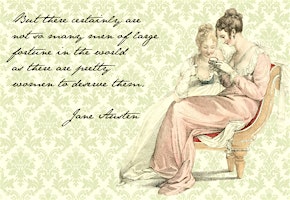
Creative Writing Workshop
Sat, Jun 8, 1:00 PM GMT+1

Creative Writing workshop - Obscure
Fri, May 31, 1:00 PM GMT+1

Creative Writing Workshop: Detail
Mon, Jun 10, 8:00 PM GMT+1

Creative Writing workshop - Distance
Mon, May 27, 8:00 PM GMT+1
Mon, Jun 3, 8:00 PM GMT+1
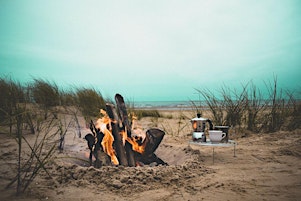
Creative Writing Workshop: Picnic
Fri, Jun 14, 1:00 PM GMT+1

Creative Writing Workshop Online: Looking at Story
Saturday at 10:00 AM GMT+1

Creative writing workshop: Something old/new/borrowed/blue
Friday at 1:00 PM GMT+1
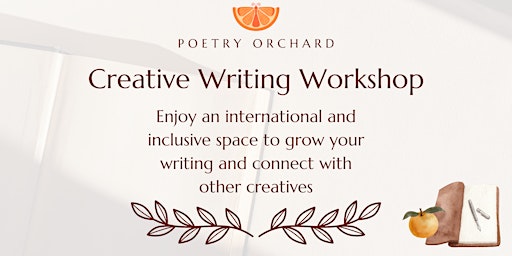
Jane Austen Inspired Creative Writing Workshop
Sunday at 7:00 PM GMT+1
Mon, May 20, 8:00 PM GMT+1

Creative Writing Workshop Online: Planning and Plotting
Sat, Jul 13, 10:00 AM GMT+1

Creative Writing Workshop Online: Mothers
Sat, Jun 22, 10:00 AM GMT+1

Tarot Tuesday Creative Writing Workshop
Tue, May 28, 3:00 PM EDT

Kiki's Delivery Service & Burnout: A Creative Writing Workshop
Saturday at 7:00 PM GMT+1

Women Only Trauma-Healing Creative Writing Workshop Series (Week 5)
Mon, Jun 3, 5:30 PM PDT

Women Only Trauma-Healing Creative Writing Workshop Series (Week 3)
Mon, May 20, 5:30 PM PDT

Women Only Trauma-Healing Creative Writing Workshop Series (Week 2)
Today at 5:30 PM PDT

Women Only Trauma-Healing Creative Writing Workshop Series (Week 4)
Mon, May 27, 5:30 PM PDT

Friendship Graveyard - creative writing workshop on friend grief
Fri, May 24, 2:00 PM EDT

Virtual Creative Writing Workshop
Wed, May 22, 1:00 PM PDT
Trends Online
1 . tickets, 2 . hackathon, 3 . webinar, 4 . naked yoga, 6 . mental health, 9 . model casting, 10 . job fair.
The Writer's Workshop for Kids
Online writing classes

The Writer’s Workshop for Kids offers creative, non-sectarian online writing classes that inspire kids to write from the heart. The *live* writing classes are standards-based, and students develop writing skills while having fun along the way. I offer weekday writing classes for homeschoolers, after-school and weekend classes, and summer writing camps.
Sign Up for Spring & Summer Writing Classes!
🗓️ Download the Spring Schedule (PDF)! (Updated 3/15)

🦋 The summer camp schedule has arrived! The Writer’s Workshop for Kids offers a creative summer writing program in a “traditional” camp schedule. The summer writing classes meet everyday for one hour on Zoom for one week. Choose from 7 weeks of engaging, lively themes to inspire your kids’ imaginations while developing writing skills! ⏰ Don’t see a time that works for you? Gather a group and contact me to create a camp!
😎 Download the Summer Writing Camp Schedule (PDF) ! (Updated 3/28; middle grade class added)

The Writer’s Workshop for Kids offers fun *live* online writing classes via Google Classroom & Zoom.

Grades K-2 Junior writers learn rhyming, the parts of speech, & more in a fun environment.

Grades 3+ From pirates & poetry to fantasy & science fiction, writers find their “voice!”

Grades 6-8 Learn how to write a research paper step by step. Or gather a group for creative writing.
My Philosophy

We have fun in class! Writing is all about sharing ideas & playing with words. We support & encourage each other. Discover what you like to write & read.
Workshop Delivery

Explore different writing styles and skills in fun, interactive online workshops . Delivered via Google Classroom, Zoom, brainstorming & discussions, videos, & more!
Feedback Style

I give personal feedback and highlight what kids are doing right. I nurture progress in writing skills with positive support & guidance!

The Writer’s Workshop for Kids is an approved vendor for California charter schools, including: Blue Ridge Academy, Cabrillo Point Academy, Compass Charter Schools, Excel Academy , Granite Mountain Charter School, IEM Schools (South Sutter, Ocean Grove, Sky Mountain) , iLEAD , Mission Vista Academy, Pacific Coast Academy, and Sage Oak Charter Schools ! You may submit a PO for my workshops if you are a member of these charter schools. Or you may pay via PayPal, Venmo, & Zelle: [email protected] .
Receive occasional updates about classes, schedules, helpful writing tips, free resources, and more.
Get ready for a fun adventure on the page !

My Writing Experience in Numbers
years of writing & editing experience
diverse industries
dedicated instructor
committed to you

IMAGES
VIDEO
COMMENTS
Awaken Your Inner Word Witch: A Creative Writing 8-Week Zoom Workshop, Starts Sunday, June 30th, 2024. $495.00. 5-Day Challenge: Use Fiction Elements to Energize Your Nonfiction (Zoom), June 17th - 21st, 2024. $299.00. As Tears Go By: Poetry & Film 6-Week Zoom Workshop, Starts Wednesday, June 12th, 2024. $395.00.
Website: The Writers' Company. 4. Creative Writing Workshops via Zoom - LA Writers Group. If you're looking for regular creative writing workshop via Zoom "based on writing prompts designed to increase creativity and help writers improve scene writing and storytelling skills", this course may benefit you.
At some online writing schools, a workshop is specifically a single-day Zoom-based workshop. That said, "writing workshop" is a rather nebulous term that has a lot of applications. A workshop is any space where writers come to grow as writers. In short, a writing workshop is an open-ended term that describes different styles of creative ...
1. Catapult. Best For | Zoom classes and virtual workshops led by renowned instructors. Starting At | $75 for a 1-day seminar. Catapult offers one of the most extensive lists of online writing workshops and classes, and many of the instructors are renowned authors or literary magazine editors. Our team has taken a six-week essay course, a one ...
In our online creative writing workshops, discover video-based live events that offer you a concentrated and interactive way to grow as a writer. ... By the end of the Zoom call, you'll have an 8 page graphic short story that's ready to illustrate. Live Online Writing Workshops. Notify me when this course is scheduled. Fiction, Live Workshop ...
Gotham Writers Workshop is a creative home where writers develop their craft and come together in the spirit of discovery and fellowship. We've been teaching creative writing and business writing since 1993. ... New classes are starting all the time, in NYC, on Zoom, and asynchronously Online. Course Catalogue Upcoming Classes. Intensives ...
Level I 10-week Workshops, 6-week Classes, Intensives - maximum 16 students. Level II 10-week Workshops (and Level III Fiction) - maximum 14 students. Selling Classes - maximum 25 students. Level III 10-week Workshops (except Fiction) - 6 students. Explore our catalogue of writing courses. And here you will find information on Gotham ...
Best Writing Workshop 2024. Live in-person and online. Supportive, collaborative workshops to take your writing to the next level. Learn more. ... with Allegra Huston and James Navé on Zoom. All workshops 1-5 pm PT / 4-8 pm ET, limited to 10 participants. February 5, 2024: Time-Travel into the Present of Your Past ...
The Zoom classes unite students from all over the world at Gotham—New York City's most well-established writing school. The Zoom classes happen on videoconference, in "real time.". Very much like an in-person class except everyone is on a computer or device in their own space. The Zoom software is free and simple to use.
Writing Workshops. The Writer's Center offers hundreds of writing workshops and classes every year. Workshops cover all genres and all experience levels. Join us in person and online. ... Zoom. Perfect your story, novel, excerpt, novella, poem, or query letter before trying to find representation or be published.
My small-group workshops support writers to do their best writing in an immersive environment, receiving expert guidance and feedback from me, along with feedback and a sense of community from the other writers. My workshop groups are small, 6-9 students. We combine regular zoom workshops for face-to-face feedback with online feedback and ...
Our instructor Susan Vespoli bases her writing circles off of the Wild Writing workshop model. In these Zoom-based poetry writing workshops, participants do the following: Each participant verbally shares an image with the group. It is an image that has sat on their minds for a few days. They should share it without qualifying it—as in ...
While taking a relatively short amount of time, monologue writing requires communicating solely in a character's voice, allowing for exploration and expression of a wide range of perspectives. This workshop — perfect for writers of any genre — will cover idea generation, character creation, character development, and dramatic structure.
The Non-Sexy Business of Writing Nonfiction walks you through the good, the bad, and the ugly of writing, publishing, and marketing nonfiction books. In this 10-day course, you'll get an email each day walking you through some critical aspect of writing and publishing nonfiction, covering topics like:
Save this event: Creative Writing workshop - Obscure Share this event: Creative Writing workshop - Obscure. Creative Writing workshop - Obscure. Fri, May 31, 1:00 PM GMT+1. ... Zoom. Explore more trends. Site Navigation. Use Eventbrite. Create Events; Pricing; Event Marketing Platform; Eventbrite Mobile Ticket App;
The Writer's Workshop for Kids offers fun *live* online writing classes via Google Classroom & Zoom. Junior writers learn rhyming, the parts of speech, & more in a fun environment. From pirates & poetry to fantasy & science fiction, writers find their "voice!". Learn how to write a research paper step by step.
1. Zoom Rooms. Zoom Rooms is a simplified virtual conference tool that makes starting a meeting, booking a meeting, and sharing content easy. The software allows you to easily book a room from your calendar, quickly join a meeting with video and/or audio, and share multiple desktops in the room simultaneously.